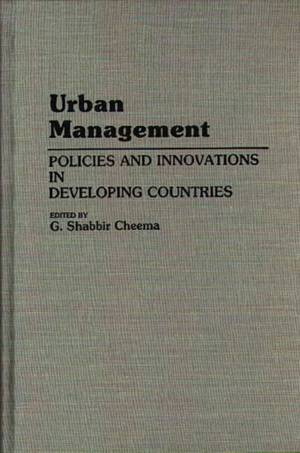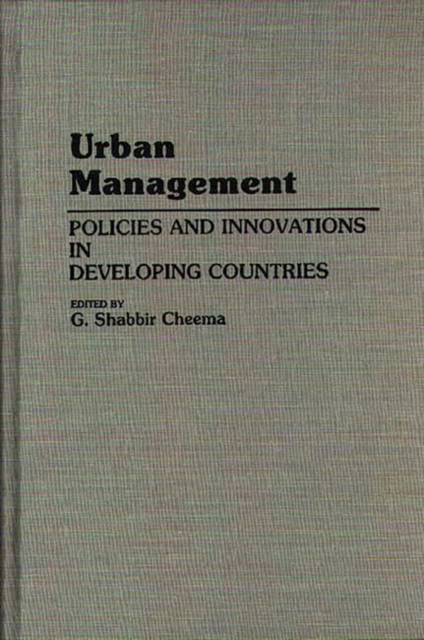
- Afhalen na 1 uur in een winkel met voorraad
- Gratis thuislevering in België vanaf € 30
- Ruim aanbod met 7 miljoen producten
- Afhalen na 1 uur in een winkel met voorraad
- Gratis thuislevering in België vanaf € 30
- Ruim aanbod met 7 miljoen producten
Omschrijving
The relentless growth of cities is inevitable--and irreversible. Developing countries' share of the world's urban population will rise to 71% by the year 2000 and 80% by 2025. By the end of the 1990s, it is estimated that 18 cities in developing countries will have a population of 10 million or more. Although those cities are centers of production, employment, and innovation, rapid urbanization has had many negative consequences: an alarming increase in the incidence of urban poverty, the concentration of modern productive activities in major metropolitan areas, inadequate access to housing and basic urban services, and the degradation of the urban environment.
Urban Management reviews the state of the art in innovative urban management, discusses the latest findings on key issues of urban management, and identifies policy-relevant research needs and priorities. Chapters are contributed by urban specialists from Asia, Latin America, Europe, Africa, Oceania, and North America, who identify urbanization processes and strategies, provide comparative analyses of urban management issues throughout the world, and present original country case studies. Recommended for urban development planners and administrators in developing countries, persons from donor countries working on projects in developing countries, students of urban management, and others interested in developmental issues at the global, regional, national, and municipal levels.Specificaties
Betrokkenen
- Auteur(s):
- Uitgeverij:
Inhoud
- Aantal bladzijden:
- 352
- Taal:
- Engels
Eigenschappen
- Productcode (EAN):
- 9780275940850
- Verschijningsdatum:
- 30/03/1993
- Uitvoering:
- Hardcover
- Formaat:
- Genaaid
- Afmetingen:
- 156 mm x 234 mm
- Gewicht:
- 666 g

Alleen bij Standaard Boekhandel
Beoordelingen
We publiceren alleen reviews die voldoen aan de voorwaarden voor reviews. Bekijk onze voorwaarden voor reviews.











